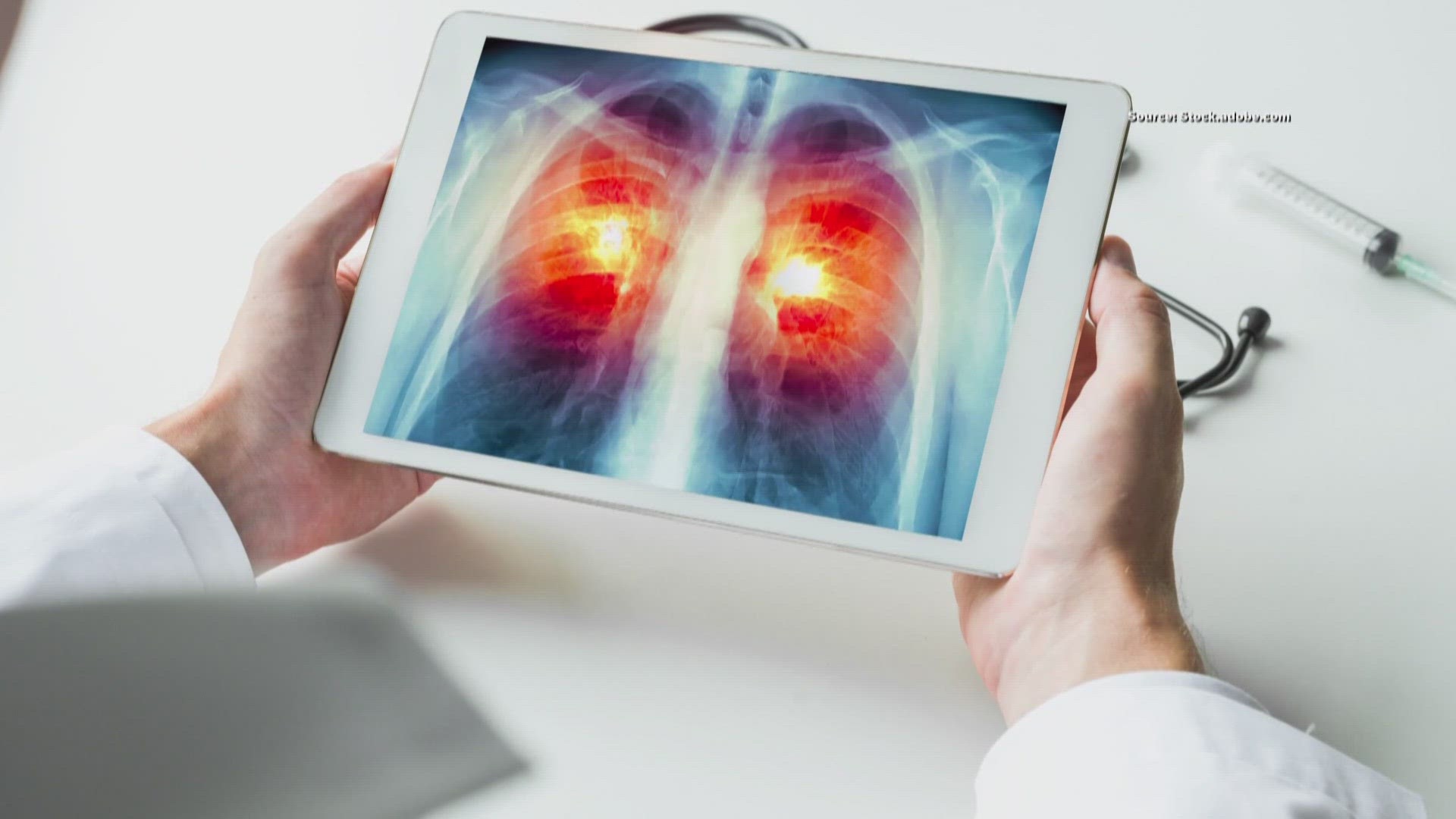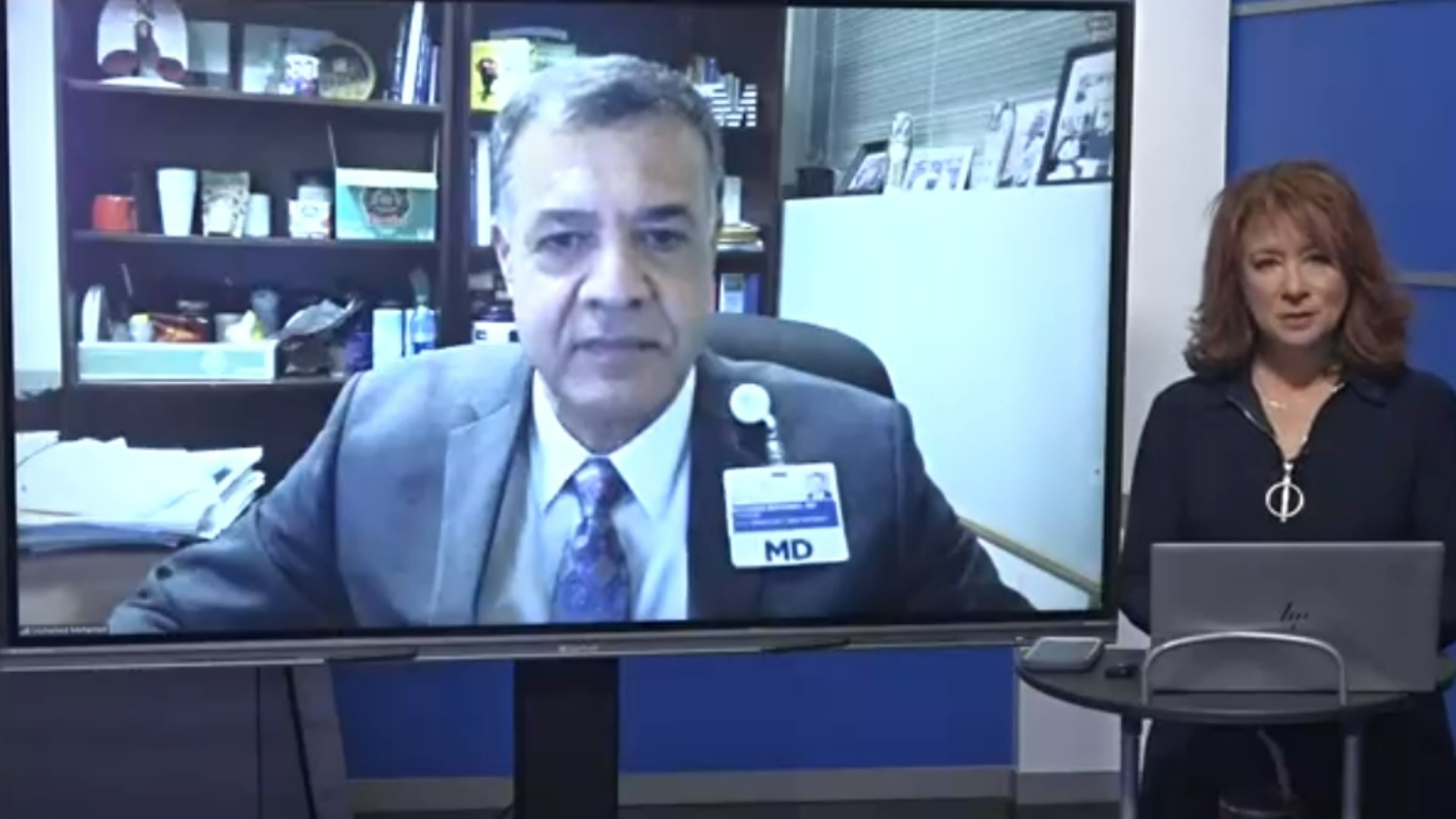GREENSBORO, N.C. — November is Lung Cancer Awareness Month. Some people think if they don't smoke, they don't need to worry about it, but the truth is that there are other risk factors associated with lung cancer.
Quick Links:
Dr. Mohamed Mohamed a Thoracic Medical Oncologist with Cone Health Cancer Center joined this segment of 2 Your Well-Being to help us better understand the signs of lung cancer and who is at risk.
Who is at risk for lung cancer?
The CDC says people who smoke cigarettes are 15-30 times more likely to get lung cancer than people who do not smoke. But smoking isn't the only risk factor. Radon is the second-leading cause of lung cancer in the United States. Radon is a natural gas that can't be seen, tasted, or smelled. People who live or work in places with high levels of radon over long periods of time are more at risk of getting lung cancer.
"One in 16 people have a lifetime risk for lung cancer, but the risk for lung cancer can happen to anyone. It can happen to a smoker or non-smoker," Dr. Mohamed Mohamed said.
He went on to say that around 40,000 to 50,000 patients who are diagnosed with lung cancer have never smoked a cigarette in their lives.
"If you have lungs, you can get lung cancer," Dr. Mohamed Mohamed added.
With that being said, lung cancer isn't always limited to smokers; it can happen to any one of us.
What are the signs of lung cancer to look for?
Symptoms to look for include coughing that worsens, chest pain, shortness of breath, coughing up blood, feeling tired all the time, or weight loss with no known cause.
"The symptoms and signs could start with some cough, shortness of breath, coughing up blood, or chest pain," Dr. Mohamed Mohamed shared.
Dr. Mohamed Mohamed said unexplained weight loss is also a symptom of not just lung cancer but any cancer.
If you notice any signs of lung cancer, what should you do?
Let your doctor know about your symptoms and ask for a referral for a low-dose CT lung cancer screening. Besides showing lung cancer symptoms, here's who else qualifies for a screening:
- 50-80 years old
- 20-pack-year smoking history. Click here to calculate your pack year.
- Current smoker or quit smoking within the last 15 years
Dr. Mohamed Mohamed recommends that you see your family doctor first. Especially if you have symptoms that don't go away or if you're a non-smoker and those flu-like symptoms don't seem to go away.
He also suggests you see a specialist, such as a pulmonologist, to take over from your regular family doctor.
What difference can early detection have?
A simple imaging test may help your doctor detect lung cancer early - when it's easier to treat. Studies show that people with a high risk of developing lung cancer have better outcomes when they have a yearly low-dose CT scan, rather than a standard chest X-ray.
Resources to quit smoking
Cone Health has a whole web page dedicated to resources to help people quit smoking. From apps to telephone coaching, here's what's available.


